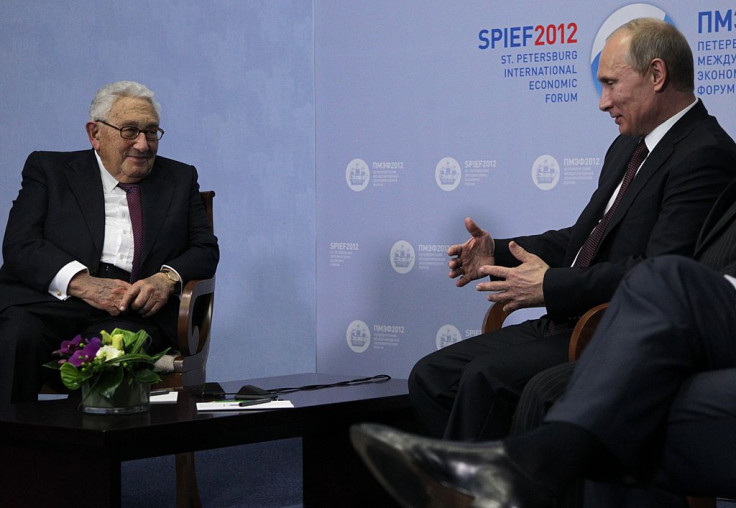Kremlin welcomes reports Kissinger is positioning himself to broker Russia-US agreement
Veteran statesman has visited both Trump and Putin in recent months.

The Kremlin has welcomed reports that former US Secretary of State Henry Kissinger may be positioning himself to broker a deal to stabilise relations between Russia and the US.
Kissinger, 93, who was secretary of state and national security adviser during the Nixon and Ford administrations, has visited Trump Tower since the election of Donald Trump as US president. He also had close ties with Russian President Vladimir Putin, and has praised him publicly.
According to German newspaper Bild citing intelligence sources, Kissinger is positioning himself to form a deal between the countries, which would see the US acknowledge Moscow's ownership of Crimea, seized from Ukraine in 2014, in exchange for the Kremlin cutting off backing for rebel groups in east Ukraine, which are fighting Ukrainian government forces.
Kissinger reportedly backs ending the US sanctions programme against Russia, imposed after the annexation.
According to the report the deal would be aimed at offsetting the growing militancy of China.
A Politico report also argued that Kissinger was positioning himself as an intermediary between the Kremlin and the Trump camp, as an effort to achieve a greater balance of power between Russia and the US.
Trump has praised Putin on the campaign trial, and praised a recent letter from Putin in which the Russian president spoke of hopes for closer Russian ties as "very correct."
Dmitry Peskov, spokesman for Russian president Vladimir Putin, said when asked about the reports, that "Kissinger remains one of the wisest politicians and experts who, among other things, has deep expertise in Russian affairs and Russia-US relations."
"If his expertise and rich experience, accumulated over the decades, will be in demand in some way, we would definitely welcome it," he said.
Kissinger is a divisive figure, who won the Nobel Peace Prize in 1973 for his role in negotiating an end to the Vietnam war, but is criticised for orchestrating the bombing campaign in Cambodia during the conflict and his backing of right-wing dictatorships in South America during the 1970s.
© Copyright IBTimes 2025. All rights reserved.






















